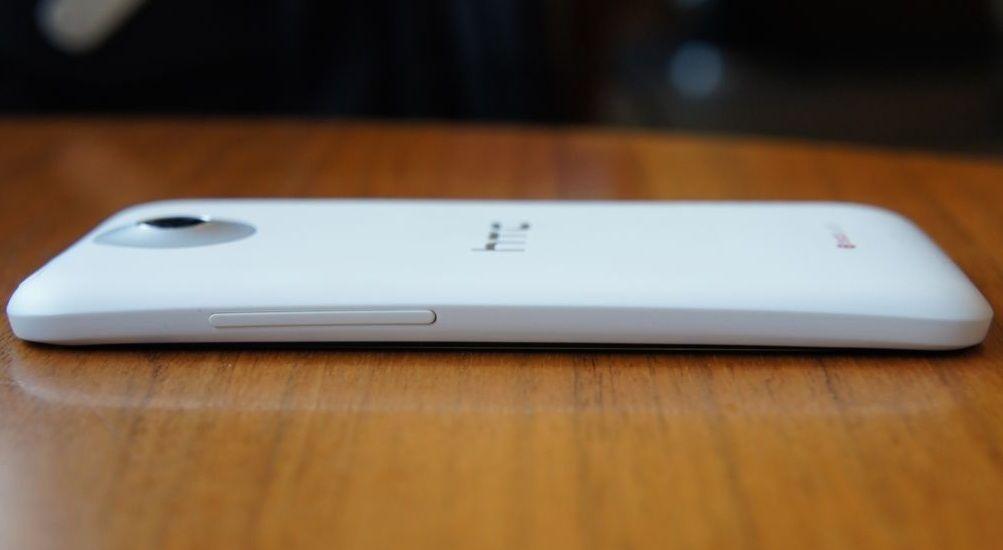
Earlier this year, HTC delivered on its unlikely promise of refocusing its devices and software on what matters most: quality over quantity in hardware and de-cluttering and simplifying in Sense UI. It unveiled its new branding at Mobile World Congress in Barcelona, Spain, One, to a rather impressed audience.
The One X, One S and One V were a stark contrast to the wide array of devices HTC was notorious for showering the market in previous years. In 2011 alone, HTC released upwards of 30 new phones including high profile devices such as: Amaze 4G, EVO Design 4G, Rezound, Vivid, ThunderBolt and Titan.
When you consider devices like the Sensation 4G, Sensation XE, Sensation XL and the Amaze 4G, which were all similar but different devices, this is exactly what we were hoping HTC would nix, their incessant penchant for incremental hardware updates to phones.
There is nothing more frustrating for wireless consumers than signing a two-year agreement and the manufacturer releasing an updated version of the same phone just a few short months later.
And that's exactly what HTC is doing … again.
The HTC One X made its way to AT&T on April 6 this year to decent success. It's a great phone with a decent price – my personal device of choice at the moment. A testament to its quality was its two-month stint at the #1 position in the Mobile Tech Expert's Chart in our Official Smartphone Rankings™. Even six months after its release, the HTC One X is holding its own at the #3 spot in both charts. Only the newer Samsung Galaxy S III and Apple iPhone 5 currently rank above it.
This morning, though, HTC announced the HTC One X+. On the outside, the One X+ isn't all that different from its predecessor. It comes in Carbon Black and with a red accent around the camera lens. (The AT&T version will not come with the red accents.) Inside, however, the One X+ is quite an improvement over its six-month-old sibling. It houses a 1.7GHz quad-core Tegra 3 chipset (versus a 1.5GHz dual-core Snapdragon S4), 1GB RAM and 64GB built-in storage. It also features the same 4.7-inch S-LCD2 720p display, but it comes with Android 4.1 (Jelly Bean) and Sense 4+.
In almost every way, the One X+ is a worthy upgrade to the One X. For international users, the One X+ adds LTE connectivity to the previously LTE-less Tegra 3 One X. And it adds a much-needed 48GB of built-in storage. And it's blatantly obvious what AT&T and HTC are up to. They are replacing an aging phone with an updated version before the holiday season by increasing battery life and storage space. Fair.
But how little HTC has done to prolong the life of its devices or to slow its product cycles irritates me.
This particular device is will be hitting shelves roughly seven to eight months after its predecessor and brings Sense UI and Jelly Bean together before existing customers get their hands on it with their One Xs. (HTC announced Jelly Bean updates will begin rolling out in October this morning, but we know good and well that those very updates will have to go through rigorous carrier testing and approval here in the States.)
Worst of all, the One X+ is yet another carrier exclusive. How are we not past this already? Who even benefits from exclusivities? The carrier? Are people really switching carriers to buy a specific phone (besides the new iPhone each year)? I find that impossibly hard to believe.
As Apple and Samsung have clearly proven more than once, consumers and the market itself have transcended beyond exclusives. You can purchase the same iPhone 5 or iPhone 4S or AT&T, Verizon or Sprint. And you can walk into any nationwide carrier store (and some regional carrier stores) and pick up effectively the same Galaxy S III. Both of these devices are wildly popular, which may not be directly related to the fact that they are widely available. But brand recognition and the fact that they are available on multiple carriers certainly make a difference.
The fact that you can't walk into a Verizon or Sprint store and purchase a One device is detrimental to the brand. If anything, the One X+ should have been HTC's break away from AT&T, a swing at offering a single device across multiple carriers. Instead, it will drown amongst the flurry of new holiday releases on AT&T and face mild success, at best.
If I were in charge at HTC, I would have held off the One X+ for a larger, less incremental release, a new device with new design and a larger impact on the market. For me, the One X+ is among the many devices below my radar. I may prefer the One X to the competition right now, but my sights are set on more groundbreaking devices like the Galaxy Note II, Lumia 920 or a possible phablet Nexus.
What about you, ladies and gents? Does the HTC One X+ interest you at all? Would it have if it made it to multiple carriers? Will you be picking one up once it releases? Or is your attention drawn to a more lustrous device?